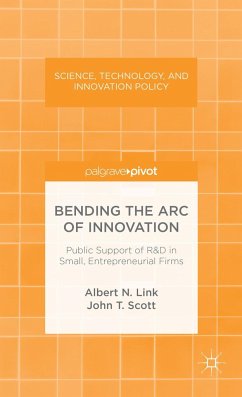In this exciting work, Link and Scott summarize more than a decade of their research on public support of R&D in small, entrepreneurial firms, concluding public R&D investments, primarily funded by the U.S. Small Business Innovation Research (SBIR) program, are indeed bending the arc of innovation. Firms that receive SBIR project funding would not undertake the projects in the absence of SBIR's support. SBIR support has had a positive impact on the employment trajectory of firms and their ability to commercialize innovations.Bending the Arc of Innovation offers a theoretical model of the effects of the SBIR program. Link and Scott demonstrate that with SBIR support of R&D often comes contractual commercial agreements with other firms to sell the rights to the technology generated by the public support. These agreements between another firm and a small firm with a SBIR-award enable an effective transfer of knowledge created with the small firm's publicly-supported research. Both parties to the agreement have better access to the knowledge resources of the other. Link and Scott show how these agreements allow the dedication of resources and organizational efforts necessary for the commercially successful access to and use of external knowledge.
Bitte wählen Sie Ihr Anliegen aus.
Rechnungen
Retourenschein anfordern
Bestellstatus
Storno








